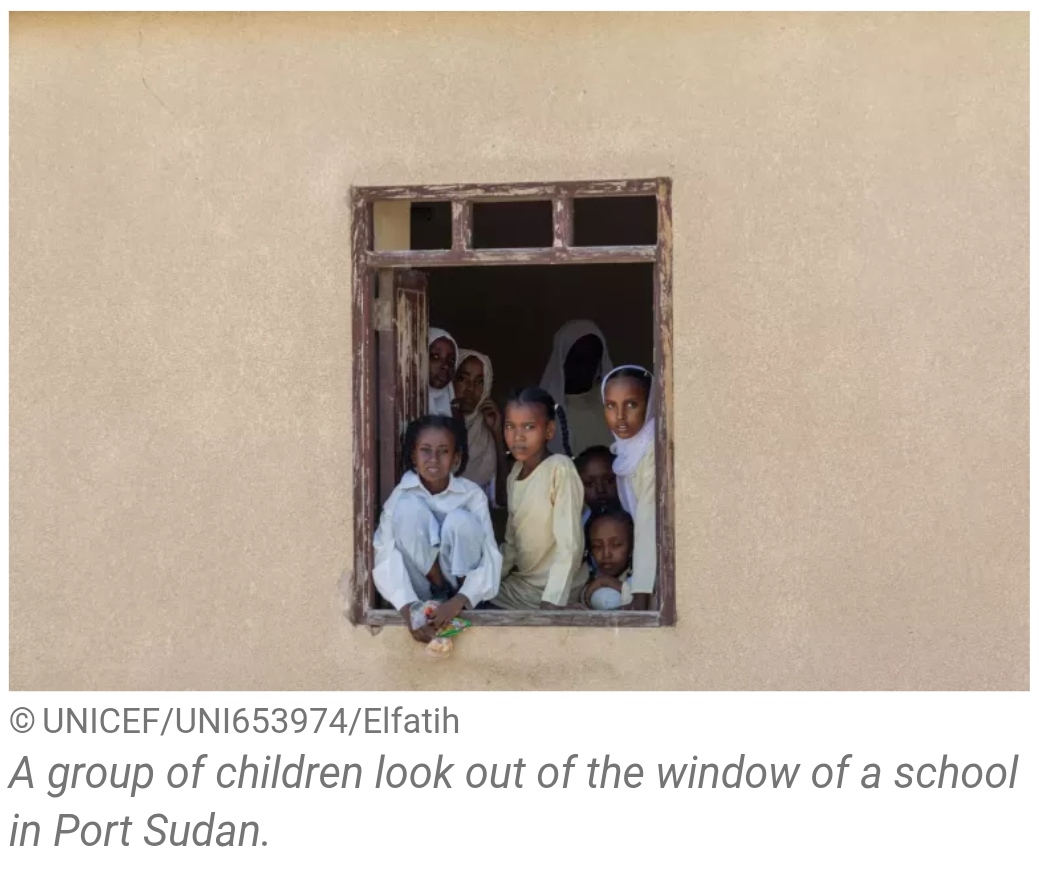UNICEF Reports Widespread Child Suffering Amid Ongoing Conflict in Sudan.
Port Sudan:
The ongoing conflict in Sudan continues to take a devastating toll on children, with recent reports highlighting the widespread violence, malnutrition, and disease that are ravaging the country.
According to UNICEF, at least 120 people were killed following shelling in Omdurman on 13 and 14 January, with children among the casualties. Just days earlier, between 7 and 8 January, 23 children were killed, and nine others were injured due to shelling in Khartoum State. These incidents are part of a growing trend of violence against children, which has been a tragic hallmark of the conflict since it erupted in April 2023.
In total, thousands of children have lost their lives or suffered severe injuries since the war began. The violence has been particularly brutal, with sexual violence and child recruitment being widely reported across the country. Between June and December 2024, over 600 cases of grave violations against children were documented, with a staggering 80 percent of these involving killings and maimings. The most affected regions have been Darfur, Kordofan, and Khartoum.
In addition to the direct violence, Sudanese children are facing a growing hunger crisis, with famine now affecting key regions, including camps for displaced people in North Darfur and the Western Nuba Mountains. Estimates suggest that the famine may spread to additional areas, potentially affecting 17 more locations by May 2025. UNICEF predicts that 770,000 children under five will suffer from severe acute malnutrition in 2025, a life-threatening condition that could claim many more young lives.
UNICEF has been working tirelessly to deliver aid to children across Sudan, providing critical services such as psychosocial counseling, education, and protection. In 2024 alone, UNICEF and its partners reached 2.7 million children and caregivers with support, and over 9.8 million children and families were provided with safe drinking water. Additionally, 6.7 million children were screened for malnutrition, with 422,000 receiving lifesaving treatment.
Despite these efforts, the delivery of aid remains incredibly challenging due to security concerns, bureaucratic hurdles, and logistical barriers. UNICEF continues to call on the Government of Sudan and all other concerned parties to facilitate unimpeded access to humanitarian aid, stressing that the only path to a better future for Sudan’s children is the end of the conflict.
The situation is dire, and as the conflict rages on, there is an urgent need for global attention and action to protect Sudan’s most vulnerable citizens – its children.



